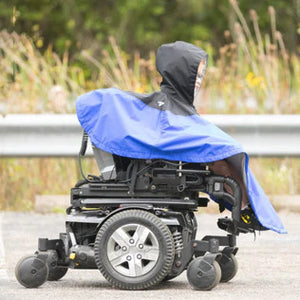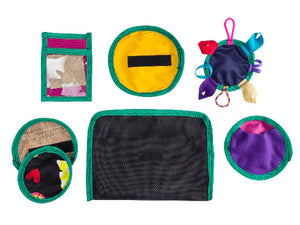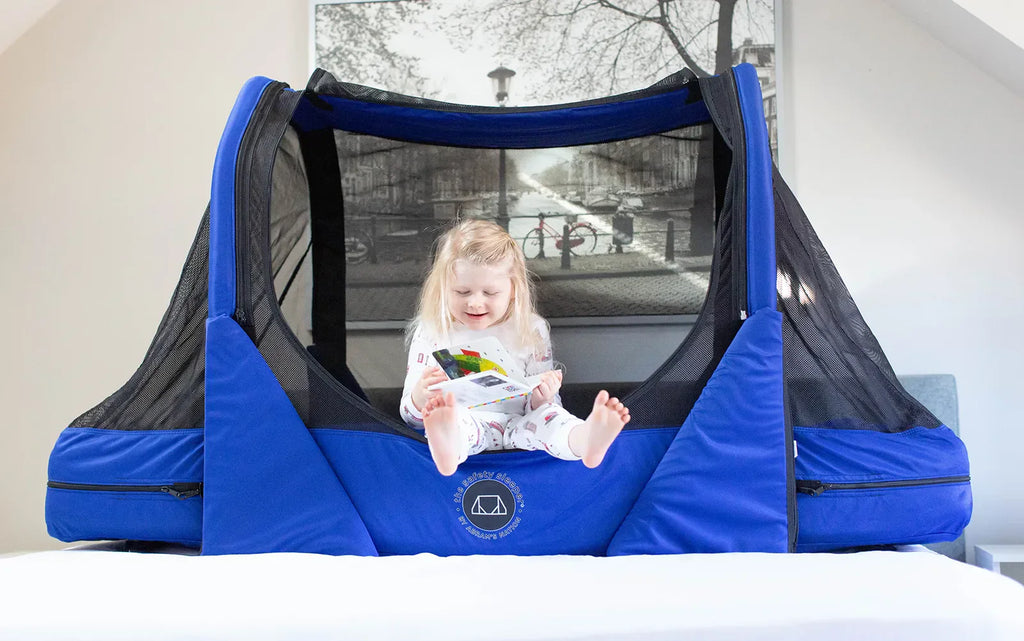You know how when you're on the plane and the flight attendant says in case of an emergency you should fit your own oxygen mask before assisting your child? There's a very good reason behind this: How can you help your child if you yourself are oxygen deprived?
It makes sense, but also in a lot of ways goes against our basic parenting instincts to sacrifice ourselves for our children. And it's an aphorism with many applications: How can you help your child sleep through the night when you yourself are sleep deprived?
Sleep problems and special needs go hand-in-hand. It's pretty rare to talk to a parent of a special needs child who isn't sleep deprived on some level, both from being overworked in general, but also from being up all night trying to get their child to fall asleep.
If you want to find advice on how to help your child sleep through the night, the internet is full of great ideas. But I'm here to ask you about YOU. Are you as focused on your own sleep routine as you are on your child's? Self care is not selfish. You can't expect yourself to function without enough sleep, and as a special needs parent you have a lot of functioning to do every day!
How Can I Get Better Sleep as a Special Needs Parent?
1. The more sleep they get, the more sleep you get.
This is obvious, but does need to be the first point on the list. Working on your child's sleep routine and sleep plan is the first step toward getting any sleep yourself. We had great success early on using the Ferber method of sleep training for my son and we've stuck with the same concepts even as he's gotten older.
2. Stick to a schedule for your child and yourself.
We talk a lot about sleep schedules and sleep routines for kids, but what about for ourselves? Turn off those devices, turn down the lights and really focus on getting to bed at the same time (the earlier the better) every night.
3. Beware of night time me time.
I know what it's like: You have little to no control over your time during the day as you take care of your child and your family, juggle a job and housework. Now that everyone is asleep it's your one chance to spend time on yourself! It's easy to get into a habit of staying up late doing those things you never get to do (watch Netflix, chat with friends on social media, read a book), but sleep really has to take precedence.
4. Tell your brain to be quiet.
Another common problem for special needs parents is that when the lights are out and the house is calm, that's when we start thinking. And thinking. And thinking. About medical appointments and procedures, about financing equipment, about the scary future. It can be tough to just relax. If this sounds like you, consider trying meditation to help wind down. I'm also not at all averse to medication and rely on sleeping pills myself to get to sleep at night. Talk to your doctor about what might work best for you.
5. Rely on alarms and monitors when you can.
Another problem we often face at night is wanting to make sure we keep one eye open to watch our child. Just in case. It's not really feasible since you have to sleep at some point, right? If you can, get monitors or alarms that can keep watch for you and notify you when your attention is needed. And then... trust them. If something goes wrong the alarm will let you know. In our house I very much trust our seizure monitors.
6. Nap
I'm not a huge napper, but I know a lot of parents who absolutely depend on catnaps throughout the day to get by. If you can nap, do it. Rack up those sleep points any way you can!
7. It's ok to ask for help.
If everything I've said here sounds completely unrealistic for your life, then it may be time to look for night help. Kids who are medically complex are often eligible for overnight nursing. Maybe not every night, but enough hours a week to give you a break. You can also look into respite care or just hire a babysitter (or family member) to watch your child for you at night once in a while so you can get some sleep.
Remember: Self care is not selfish. You need to take care of yourself if you are going to be able to take care of your child.
Bio: Amber Bobnar lives with her husband and son, Ivan, in Watertown, MA. Originally hailing from Hawaii, Amber and her family moved to Watertown to be closer to Boston Children's Hospital. She has a Master’s degree in English from Tufts University and spends most of her "free time" writing about being a parent of a disabled child on WonderBaby.org. But really most of her time is spent caring for and playing with her son.

































